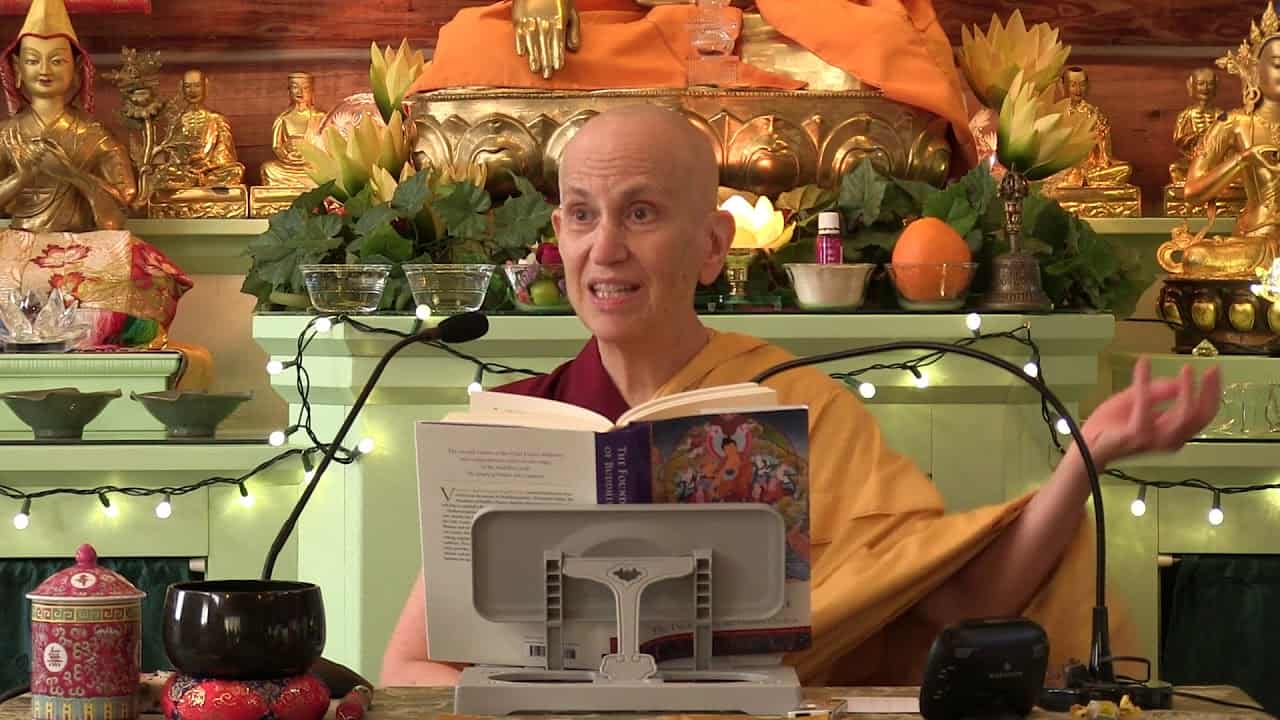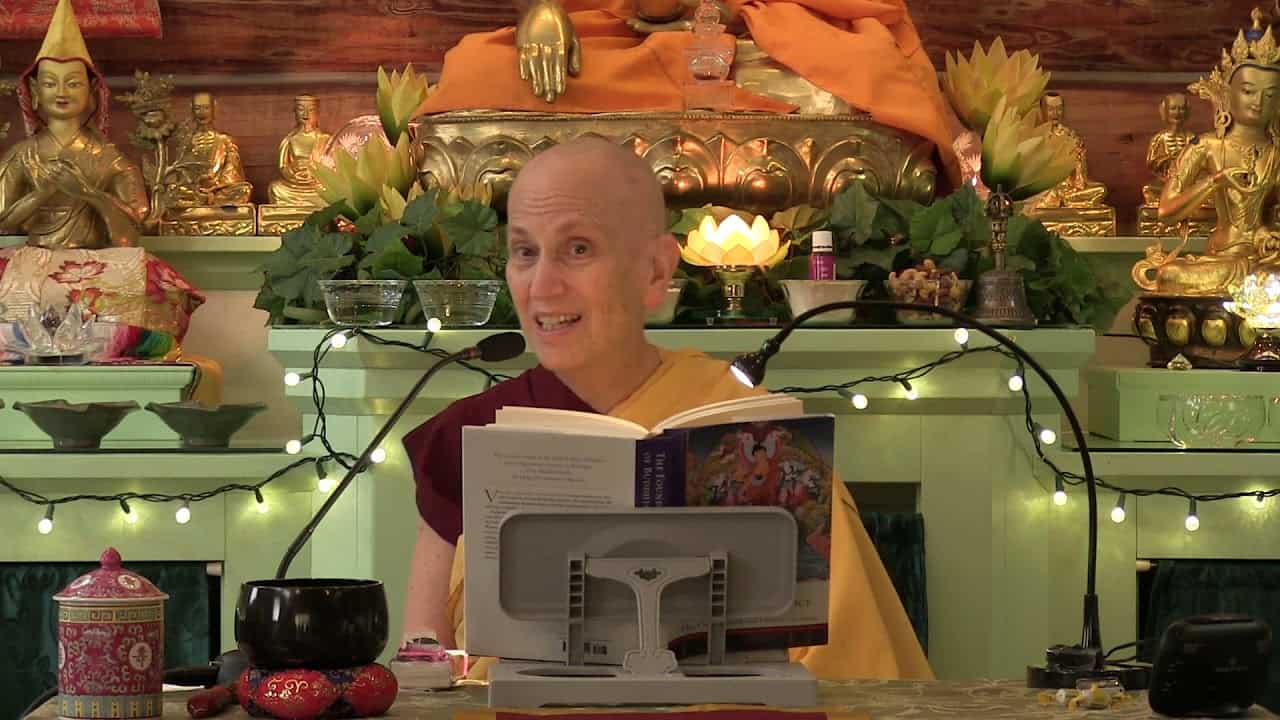Roles and responsibilities of a spiritual mentor
18 The Foundation of Buddhist Practice
Part of a series of teachings given during a retreat based on the book The Foundation of Buddhist Practice given at Sravasti Abbey.
- The hierarchy between teacher and student
- Clear expectations about the role of a spiritual mentor
- Three types of practice, three types of spiritual mentors
- Questions and answers
The Foundation of Buddhist Practice 18: Roles and responsibilities of a spiritual mentor (download)
Contemplation points
- What is the attitude with which we want to approach our spiritual mentors, the teachings, and visiting the monastery? How is this beneficial for our own mind?
- What is the role of a spiritual mentor in our lives? How is this different from our other relationships? Why does this role not include filling our emotional needs, being a psychotherapist, tell us who to marry, etc? Have you ever had expectations of a spiritual mentor that were not realistic? What were the results? How did you work through it?
- What are the three types of practices, their method, and ethical restraints? What are the differences in how we are to relate to our mentors in these different practices? Why is this helpful for us as we progress along the path?
Venerable Thubten Chodron
Venerable Chodron emphasizes the practical application of Buddha’s teachings in our daily lives and is especially skilled at explaining them in ways easily understood and practiced by Westerners. She is well known for her warm, humorous, and lucid teachings. She was ordained as a Buddhist nun in 1977 by Kyabje Ling Rinpoche in Dharamsala, India, and in 1986 she received bhikshuni (full) ordination in Taiwan. Read her full bio.


